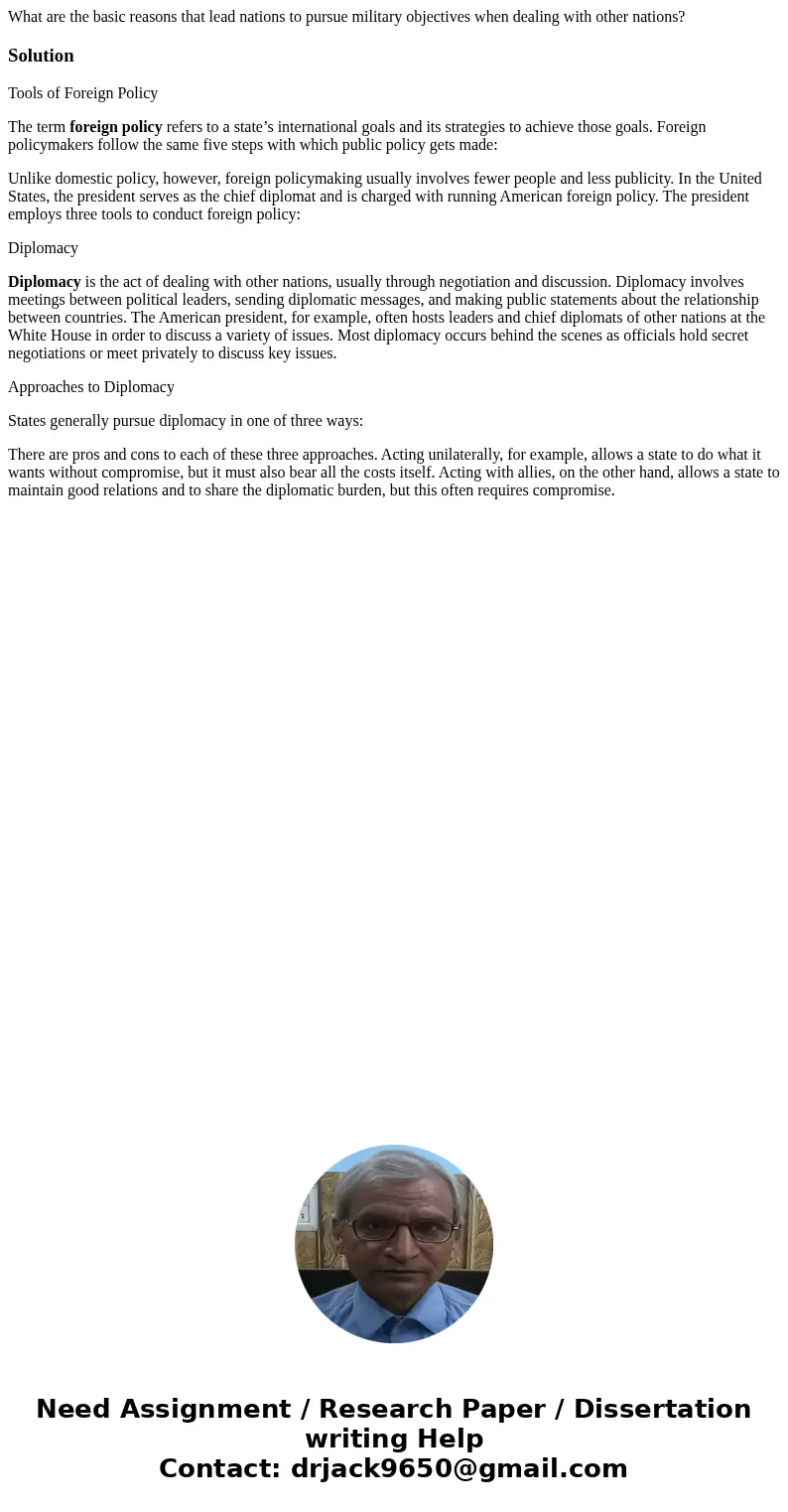What are the basic reasons that lead nations to pursue milit
What are the basic reasons that lead nations to pursue military objectives when dealing with other nations?
Solution
Tools of Foreign Policy
The term foreign policy refers to a state’s international goals and its strategies to achieve those goals. Foreign policymakers follow the same five steps with which public policy gets made:
Unlike domestic policy, however, foreign policymaking usually involves fewer people and less publicity. In the United States, the president serves as the chief diplomat and is charged with running American foreign policy. The president employs three tools to conduct foreign policy:
Diplomacy
Diplomacy is the act of dealing with other nations, usually through negotiation and discussion. Diplomacy involves meetings between political leaders, sending diplomatic messages, and making public statements about the relationship between countries. The American president, for example, often hosts leaders and chief diplomats of other nations at the White House in order to discuss a variety of issues. Most diplomacy occurs behind the scenes as officials hold secret negotiations or meet privately to discuss key issues.
Approaches to Diplomacy
States generally pursue diplomacy in one of three ways:
There are pros and cons to each of these three approaches. Acting unilaterally, for example, allows a state to do what it wants without compromise, but it must also bear all the costs itself. Acting with allies, on the other hand, allows a state to maintain good relations and to share the diplomatic burden, but this often requires compromise.

 Homework Sourse
Homework Sourse